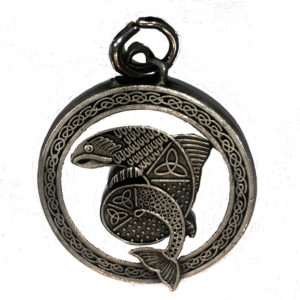Forum Replies Created
-
AuthorPosts
-
Antaine
Participantoh, yes! You’re right on both counts, “an mbeidh” and leithéidí.” I think the original uses the singular, and I think the singular could work, but using the plural removes any ambiguity arising from the fact that L can’t eclipse after the possessive pronoun.
Antaine
ParticipantMy brother encountered a group of three mid-twenty-somethings conversing in Irish on a street in Cambridge…they were immigrants from a Gaeltacht (and not related to each other), so the Boston area does indeed have some native speakers, if you know where to look and are lucky enough to hear them using it in public.
Antaine
ParticipantIt’s also an official working language of the EU, which makes it about as “international” as you can get (kinda stupid thing to try to define anyway). You can refer her to the EU website:
http://ec.europa.eu/languages/languages-of-europe/eu-languages_en.htm
“The European Union has 23 official and working languages. They are: Bulgarian, Czech, Danish, Dutch, English, Estonian, Finnish, French, German, Greek, Hungarian, Irish, Italian, Latvian, Lithuanian, Maltese, Polish, Portuguese, Romanian, Slovak, Slovene, Spanish and Swedish.”So Irish is at least as alive as all those others. It’s also the 76th most spoken language in the US:
http://en.wikipedia.org/wiki/Languages_of_the_United_States#Irish
“Up to 37 million Americans have Irish ancestry, many of whose ancestors would have spoken Irish. According to the 2000 census, 25,661 people speak Irish at home. As of 2008 it was the 76th most spoken language in the USA, with 22,279 speakers.”
(Source: US Census Bureau http://www.census.gov/hhes/socdemo/language/data/other/detailed-lang-tables.xls )Antaine
Antaine
ParticipantCan it also mean “who escaped from me?” I mean the implication of “the one who got away” is a woman (or fish) whose leaving was udesirable to the speaker and in spite of implied efforts to possess the subject.
Antaine
ParticipantI think that’s it! grma!
Antaine
ParticipantNow, I know that’s the sense of it, but “got away” implies something a little different than simply having left. Is there possibly a better word than imigh? I mean, “The woman who left” is not quite the same sense as “the one who got away.”
I know lots of phrases don’t translate from one language to another, but I’m hoping I can get closer than imigh.
Antaine
ParticipantI will email you, and I will be happy to answer your questions. I will also tell my students about this and they may wish to participate as well.
Antaine
Antaine
ParticipantYes, but with the spin on it that I have, it can be applied to careers stretched beyond the “Peter Principle,” relationships on the rocks, unsustainable economic practices, etc, etc. That was why I was leaning toward the “continue” translation.
Antaine
Participantah, go deimhin, gabh mo leithscéal… “nach féidir leis” in abairtí araon
Antaine
Participantgo raibh maith agaibh. Of the bunch, I’m liking
An rud nach féidir a bheith buan go deo, ní bheidh,
But I’m wondering if I went wrong in trying to translate “go on” as “persist.” Cad a smaoinigh sibh ar, “An rud nach féidir a lean go deo, ní leanfaidh.”?
-
AuthorPosts
